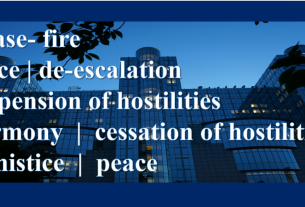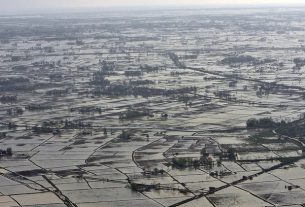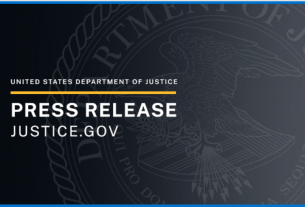Sudan: Transitional Government Dissolved as New Prime Minister Outlines Security Priorities
Sudan’s newly appointed Prime Minister, Kamil Idris, has dissolved the transitional government and tasked ministry undersecretaries to manage day-to-day affairs until a new cabinet is formed. In a national address, Idris identified six urgent priorities, foremost among them the restoration of state authority and national security by eliminating the Rapid Support Forces (RSF) and other militias. He also pledged to initiate an inclusive Sudanese-led dialogue and urged external actors to halt support for armed groups. The appointment has faced criticism from some political factions who argue it could legitimize continued military dominance. (Source: Sudan Tribune)
UN Renews South Sudan Arms Embargo Amid Renewed Conflict Fears
The United Nations Security Council has extended the arms embargo and individual sanctions on South Sudan until May 31, 2026. The vote passed narrowly, with nine members in favor and six—including all African members—abstaining. The extension comes amid escalating clashes between President Salva Kiir’s forces and those loyal to Vice President Riek Machar, who was recently placed under house arrest. The Council also renewed the mandate of the Panel of Experts monitoring the sanctions. South Sudan’s government has criticized the decision. (Source: Radio Tamazuj)
Mali: Court Upholds Political Party Ban Amid Rising Insecurity
Mali’s judiciary has rejected appeals to overturn the military government’s recent ban on political parties, following a May 13 decree dissolving all political organizations and banning assemblies. Opposition groups condemned the move as a violation of constitutional rights and plan to escalate their case both domestically and internationally. Meanwhile, national consultations proposed extending junta leader Assimi Goita’s term and tightening political participation rules. (Source: AFP)
Mali: Dozens of Soldiers Killed as Insurgents Overrun Military Base
The al-Qaeda-linked group JNIM has claimed responsibility for overrunning a Malian army base in Boulkessi, near the Burkina Faso border. Over 30 soldiers were reported killed, according to security sources. This is the latest in a string of attacks across the Sahel by JNIM, which also claimed deadly raids in Burkina Faso and Niger in May, with cumulative death tolls exceeding 300 soldiers. Mali’s army has yet to release an official casualty figure. (Source: Reuters)
Nigeria: Military, Police Personnel Detained Over Arms Sales to Militants
Nigeria’s armed forces have detained more than 30 individuals—including soldiers, police officers, and civilians—for allegedly stealing and selling military-grade weapons to jihadist and criminal groups. The arrests stem from an internal investigation launched in August 2024. The detainees include a traditional leader and were linked to arms leaks that have reportedly supplied 20% of jihadist arsenals in the Sahel. (Source: AFP)
Nigeria: At Least 200 Dead in Mokwa Floods as Search Operations End
Authorities have halted search operations in Mokwa, Niger State, where devastating floods have claimed at least 200 lives. Triggered by early-morning torrential rains, the flood submerged hundreds of homes in the trading town. Over 3,000 residents were displaced and officials are now focused on body retrieval and preventing disease outbreaks. Flooding during Nigeria’s rainy season is common, but the scale and speed of this disaster were unprecedented. (Source: AP)
Somalia: President Calls for National Political Forum Amid Growing Discontent
Somali President Hassan Sheikh Mohamud has announced a national political consultative forum to be held in Mogadishu on June 15, 2025. The move follows the collapse of the National Consultative Council (NCC), with several federal member states aligning with the ruling party. Critics accuse the president of marginalizing opposition voices ahead of next year’s election, potentially paving the way for a term extension. (Source: Garowe Online)
African Court Set to Elect New President
The African Court on Human and Peoples’ Rights will elect a new president during its 77th Ordinary Session on June 2. Justice Imani Daud Aboud of Tanzania and Vice President Justice Modibo Sacko of Mali conclude their maximum terms. Justice Aboud, the first East African woman to lead the Court, oversaw key rulings on electoral and human rights issues. (Source: The East African)
Tanzania: Chadema Demands Electoral Reform Before 2025 Elections
Opposition party Chadema launched its “No Reforms, No Election” campaign in Arusha, reiterating it will not participate in future elections unless comprehensive electoral reforms are enacted. Party leaders criticized the government’s failure to implement African Court rulings, calling the current system undemocratic. Arusha was chosen for its symbolic value and past electoral violence. (Source: The East African)
Tanzania: UN Petition Filed Over Opposition Leader’s Detention
Lawyers for opposition leader Tundu Lissu have appealed to the United Nations Working Group on Arbitrary Detention, urging intervention in what they allege is politically motivated detention. Lissu, previously targeted in a 2017 assassination attempt, faces treason charges for comments about postponing national elections. His arrest has reignited concerns about human rights under President Samia Suluhu Hassan. (Source: RFI with Reuters)
Ivory Coast: Opposition Coalition Demands Electoral Dialogue
An opposition coalition comprising 24 political parties held its first rally demanding transparent elections ahead of the October 25 presidential vote. The coalition seeks revisions to the voter roll and the inclusion of barred candidates. Tidjane Thiam, a key opposition figure currently exiled due to a nationality dispute, addressed the rally virtually. The electoral climate remains tense amid memories of past political violence. (Source: AFP)
Tunisia: Lawyers Decry ‘Harsh Transfers’ of Detained Opposition Figures
Tunisian authorities have transferred several jailed opposition leaders to remote prisons without notice. Lawyers and families condemned the move as punitive and obstructive to legal and familial access. The detainees are facing charges in a mass trial that rights groups have criticized as politically motivated. The transfers come amid growing accusations of authoritarianism under President Kais Saied. (Source: AFP)
Libya: Weekly Anti-Government Protests Persist in Tripoli
For a third consecutive week, hundreds of Libyans protested in Tripoli demanding the resignation of Prime Minister Abdulhamid Dbeibah. The demonstrations follow deadly armed clashes in the capital and public frustration over government-linked militia activity. Protesters chanted for regime change, denouncing recent executive moves to dissolve rival armed groups. (Source: AFP)
Egypt: Mother of Detained Activist Hospitalized After 242-Day Hunger Strike
Laila Soueif, mother of jailed British-Egyptian activist Alaa Abd el-Fattah, has been hospitalized in London after over 240 days on hunger strike. She resumed her full strike in May to protest her son’s continued detention beyond his 2024 release date. UN experts have previously declared his imprisonment a breach of international law. (Source: AFP)
Security Alert: Al Shabaab–Houthi Collaboration Escalates Regional Risk
Security analysts warn of deepening cooperation between al Shabaab and Yemen’s Houthi rebels. The alignment is enabling both groups to expand operations across the Gulf of Aden, posing escalating threats to maritime and regional security. (Source: Regional Security Reports)
African Minerals: A Critical Juncture for Economic and Political Reform
Experts urge African nations to adopt transparent, citizen-focused governance models as global demand for critical minerals surges. Without reforms, the continent risks repeating the “resource curse” seen in earlier commodity booms. (Source: Economic Policy Briefs)
Africa’s Rapid Urbanization Shifts Security Paradigm
The continent’s record-breaking urbanization is redefining national security concerns. With urban centers increasingly becoming hotspots for both organized crime and civil unrest, governments are being urged to adapt security policies accordingly. (Source: Urban Policy Review)



